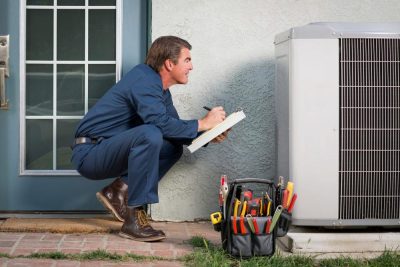
Owning a rental property is a smart way to build long-term wealth, but success depends on how well you manage it. Profitability requires steady income, careful handling of ongoing costs, and responsiveness to tenant needs and unexpected issues.
This is especially important in competitive markets like Washington, DC, where landlords must navigate shifting rent trends, seasonal demand changes, and strict housing regulations. Whether managing one unit or several, staying organized and informed is essential.
With the right approach, you can reduce vacancies, attract reliable tenants, and keep maintenance costs under control. The strategies below can help ensure your rental remains profitable year after year.
Set Competitive Rental Rates
Rental pricing mistakes often lead to vacant months or underperforming income. Set the price too high, and the unit sits empty. Set it too low, and it cuts into long-term returns. Without a clear strategy, even well-maintained properties struggle to stay profitable over time.
In Washington, DC, pricing is especially sensitive to seasonal shifts, neighborhood-level demand, and what renters are willing to pay for specific layouts or amenities. General listing platforms offer a rough guide, but they rarely reflect the patterns that shape rent behavior at the street level.
Using the local knowledge and expertise of DC property management companies, such as Nomadic Real Estate, helps landlords avoid mispricing, reduce vacancy time, and maintain a consistent cash flow throughout the year.
Minimize Vacancy Rates
One of the easiest ways to lose money on a rental property is to let it sit vacant. Even a month without rent coming in can put a big dent in your annual profits. That’s why reducing vacancy time should be a top priority.
Start by planning ahead. If a tenant gives notice, don’t wait until they move out to start showing the property. You can begin advertising while the current lease is still active, with their permission. The goal is to have someone lined up to move in right after the old tenant leaves.
It also helps to offer lease renewals at least 60 days before the current lease ends. A small incentive, like a slight discount or upgraded appliance, can encourage tenants to stay longer. Additionally, try to keep your leases ending during high-demand seasons, like spring or summer, so you’re not trying to fill vacancies during the slower winter months.
Screen Tenants Carefully
Having the right tenant can make your job much easier—and your property more profitable. A reliable renter pays on time, takes care of the unit, and usually sticks around longer. On the other hand, a bad tenant can cost you thousands in missed rent, repairs, and legal fees.
To avoid problems, always run a thorough screening process. Check their credit score, background history, and employment status, and ask for references from past landlords. You don’t need to be overly invasive, but you do want to know if the person has a track record of paying rent and respecting property rules.
Taking this step seriously upfront can save you time, money, and a lot of headaches down the road.
Keep Up with Maintenance and Repairs
Keeping your rental in good shape is more than just a matter of appearance—it’s a big part of staying profitable. A well-maintained property not only attracts better tenants, but it also prevents small problems from turning into expensive ones later on.
Regular maintenance should be part of your routine. That means seasonal check-ups for heating and cooling systems, cleaning out gutters, checking for leaks, and making sure appliances are in working order. These small tasks can extend the life of your equipment and reduce the risk of emergency repairs.
It also helps to build a relationship with a few local handymen or contractors you trust. That way, when something breaks, you’re not scrambling to find help at the last minute—or overpaying for rushed service.
Stay Legally Compliant
One of the fastest ways to lose money on a rental is by getting into legal trouble. That’s why it’s so important to stay on top of rental laws, especially if you own property in a city or state with strict housing rules.
Make sure your lease agreements are up to date and clearly explain the terms, like rent amount, due dates, maintenance responsibilities, and the process for ending the lease. Use legal forms that are made for your state and double-check them each year for updates.
It’s also your job to follow fair housing laws. These rules are designed to prevent discrimination when renting out property. Whether it’s screening tenants or advertising the rental, be sure you’re treating everyone fairly and consistently.
In cities like Washington, DC, there may also be rules around rent control, eviction processes, and inspections. Ignoring these can lead to fines or lawsuits, so it’s always better to be safe and informed.
Reinvest Profits for Long-Term Growth
Once your rental is bringing in a steady income, think about how you can use that profit to grow even more. Reinvesting money back into your property—or into other rentals—can help you build long-term wealth.
You might use your profits to make more upgrades, pay down your mortgage faster, or save for a down payment on another property. If you’re planning to grow your rental portfolio, refinancing could give you access to equity you’ve built over time.
It’s also helpful to have a long-term plan. Are you looking to retire early? Build a full-time rental business? Create passive income? Knowing your goals can help guide your decisions on where to reinvest and how much risk to take on.
Keeping a rental property profitable isn’t just about collecting rent. It takes a hands-on approach, smart planning, and attention to both big and small details. From setting the right price to reducing costs and building strong tenant relationships, each part plays a role in helping you earn consistent income year after year.
The rental market will always have ups and downs, but if you take the time to manage your property well, you’ll put yourself in a great position to succeed. Whether you own a single unit or are growing a larger portfolio, these steps can help you get the most out of your investment for the long haul.








